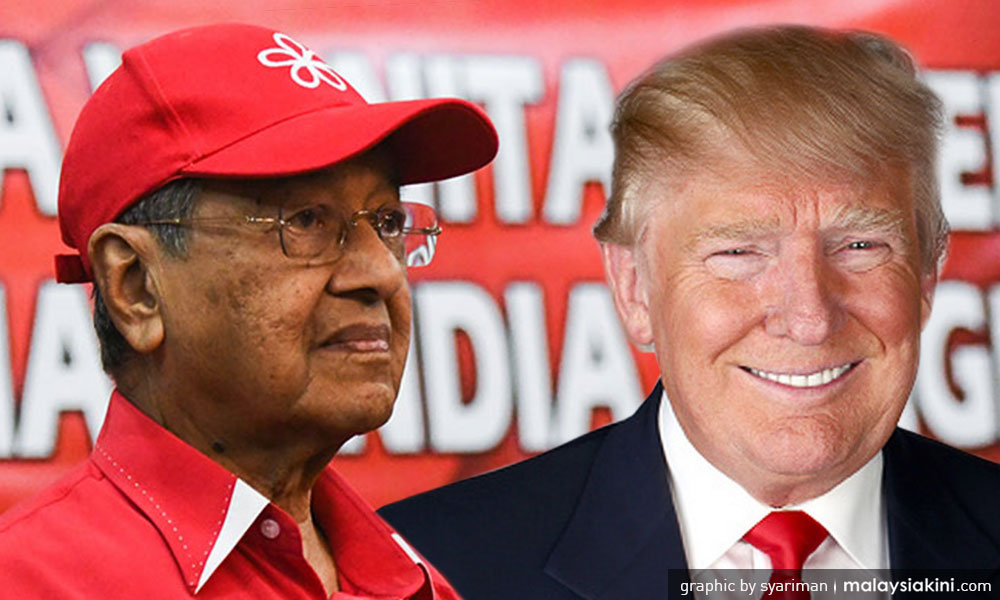
Editor’s note: This is the second of a two-part series.
Yesterday, we discussed what US President Donald Trump could learn from former prime minister Najib Abdul Razak (and Richard Nixon).
Today, let’s look at the American 2018 midterm results, and see what Malaysia might be able to learn from Trump and America.
In particular, we will look at questions of national unity and an increasingly polarised electorate generally, and more specifically, how this might inform the debate on the International Convention on the Elimination of All Forms of Racial Discrimination (Icerd).
One key, albeit expected result, is that the Democrats won control of the House of Representatives (the lower legislative house, equivalent to the Dewan Rakyat).
Under a Westminster system, such as that practised in Malaysia, this would have already triggered a change in government.
The Democrats fared more poorly in Senate races (the upper legislative house, equivalent to our Dewan Negara). They needed to maintain all their seats, and flip two Republican seats, in order to gain control of the Senate.
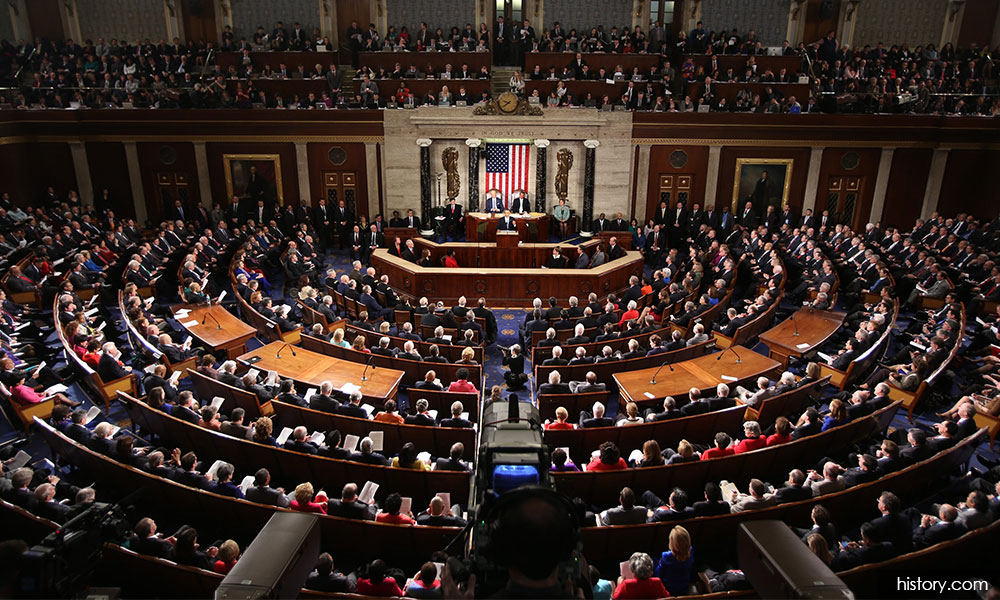
They only succeeded in flipping one, while the Republicans flipped three, ensuring that the Republicans will again be in control of the Senate, and may even increase their majority, depending on pending final results.
On the whole, it appears that Trump was one of the largest factors in these elections.
It doesn’t matter who’s 'right'
For many of us, especially those with even the slightest left-leaning progressive inclinations, many words come to mind when we think of so many people still voting for politicians aligned to Trump: incredulous, unimaginable, and unthinkable are but a few.
Given everything that we clearly see of this buffoon, his paucity of morals, his bigotry, and the seemingly unending depths of his corruption (see yesterday’s article), how is it people (and many people at that) still vote in ways to prop him up?
Reflecting on this question brings us to what I personally believe may be some of the biggest and most important insights in politics.
Simply put: People don’t think the way we do.
Truly understanding this simple fact on a political level requires some fundamental paradigm shifts.
First and foremost among these are: It doesn’t matter who is right.
This is of course the truncated, no-holds-barred version of the saying, which more effectively communicates the salient point.
A more technically accurate version might sound something like: if you are interested in educating or influencing voters, attempting to forcefully impose your intellectual framework on others (no matter how wise, intelligent or ‘correct’ it is), may only frustrate your goals.
Suspension of disbelief
If I were an American working in politics over there, I think a huge and necessary first step would be a suspension of disbelief.
In essence, we have to get over and move beyond the shock of how other people think, no matter how wrong or misguided it seems to us.
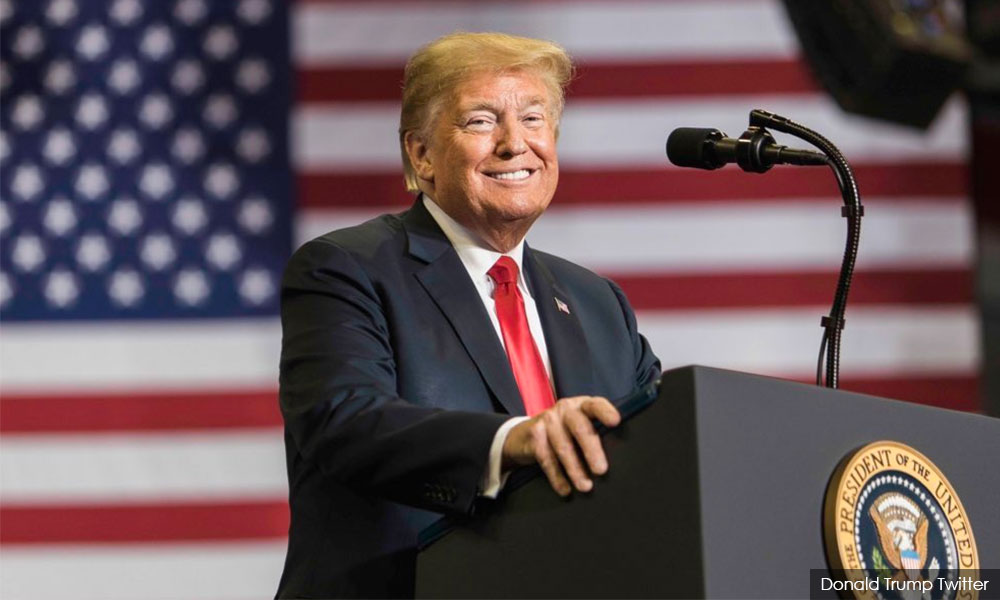
If the predominant thought in your head is “Oh my God, these idiots are just so unimaginably stupid”, you will never effectively change their vote.
At some point, we’ll have to ask ourselves how important changing that vote is.
Some people are more concerned with the ranting and the raving - finding all sorts of ways to prove they are right, and proving Trump supporters dead wrong.
Technically speaking, I of course cannot help but agree that such Trump supporters are often just plain wrong about a lot of things (take climate change for example). That said, if we keep using this approach, we are perpetuating the much larger problem here.
That problem is polarisation.
Understanding the Trumpian era of politics
This is becoming a worldwide phenomenon, one which I think accounts for things like Brexit, and the election of right-winger Jair Bolsonaro (photo) to the presidency of Brazil, and many other similar phenomena in Europe and Asia.

I might go so far as to say that these are the defining trends and problems of our generation.
If traditional left-wing progressives keep using old methods and strategies of advocacy and activism, we may find ourselves spitting in the wind.
It’s important to realise that the landscape of opinion formation has changed significantly.
We live in an era of echo boxes, where people often consume media in such a way that amplifies the kinds of prejudices they grew up with.
Ours is a time of customised social media feeds, where you tailor the kind of opinions you are exposed to, and have little motivation or incentive to learn about the other side.
Importantly, this applies to both left- and right-wingers.
As a result, we find ourselves egged on by our limited social circle and the anonymity of the Internet to yell louder and louder, demanding that the other side change - all while refusing to budge ourselves.
Value of facts and figures
In more concrete, present and local terms, perhaps Icerd is a good medium through which this issue can be examined.
One way to approach this debate is to keep harping on facts and figures, legal interpretations, and so on.
It can be said that this approach has, by and large, failed in America.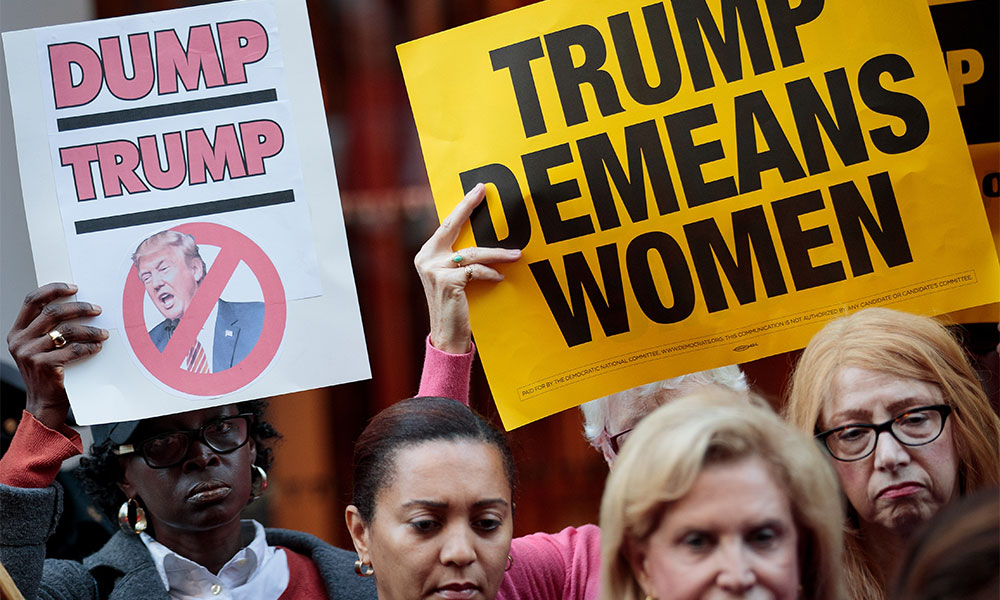

Had it succeeded, I highly doubt they would have elected a man who does not believe in climate change, almost definitely colluded with Russia, and has the approximate moral standards of a pimp.
In all honesty, I too wish for a world where every issue was debated according to high academic standards, and where the best ideas always win.
I think if we want to operate effectively and achieve our goals in the here and now, however, we cannot let this be the only approach in our arsenal.
Emotions come first
Ultimately, people’s political opinions and decisions are more often than not formed based on emotional responses.
I know as well as the next person that people organising anti-Icerd protests are almost all doing it for political self-aggrandisement - playing up racial sentiment for their own benefit.
That is neither important nor new. What is important is to understand the market that they are tapping into.
At this juncture, I daresay there are a lot of people (remembering that in terms of individual parties, Umno remained the biggest winner in GE14) who still care about things like the position of bumiputeras in Malaysia.

It doesn’t matter whether or not we know a large part of this whole bumiputera protection thing makes rich people richer while keeping the poor where they are.
What matters is how other Malaysians see it.
Said Malaysians aren’t going to read complex legal arguments about Article 153 and such. They probably wouldn’t read them in Bahasa Malaysia, much less in English.
They also aren’t going to assured by some Chinese or Indian lawyer who lives in KL and drives a BMW.
Foreign Minister Saifuddin Abdullah recently made an impassioned defence of Icerd.
He was lauded by many progressives, and rightly so. He is once again acting admirably on principles that he clearly believes in, and which I personally believe are sound and highly ethical.
The thing is, it doesn’t really matter how many non-Malay urbanites support Saifuddin.
Only Nixon could go to China
Part one of this article discussed former US president Richard Nixon, perhaps best known for the Watergate scandal.
Nixon (photo) is also famous from the saying “Only Nixon could go to China”.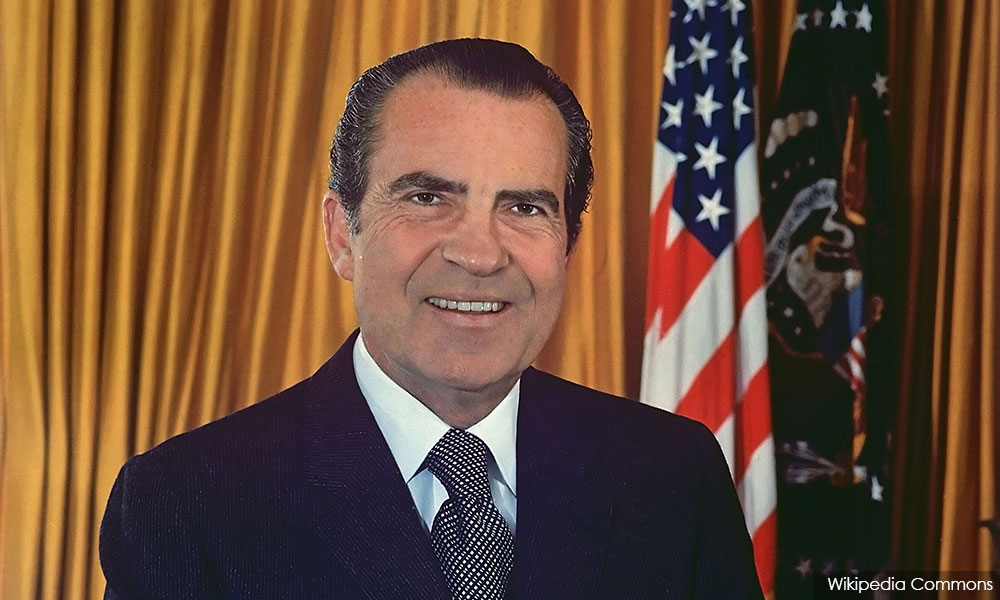

Simply summarised, only an American president with such a hardline anti-communist reputation could be ‘trusted’ to make overtures to communist China.
The same could be said of Yitzhak Rabin, an Israeli hardliner who spent much of his life fighting Palestinians, but who was also the man who eventually signed a historic peace accord with former Palestine Liberation Organisation chairperson Yasser Arafat.
The point is, if a Malay leader like Saifuddin is going to stick his neck out like that, then maybe our first responsibility (as non-Malay urbanites) is not to laud him as our champion; perhaps our first responsibility is to see how we can stick our necks out in a similar way, in the other direction.
The equivalent in our context is: it’s one thing if a Malay calls for easing of bumiputera policies, it’s another if a non-Malay calls for it.
Some opine that only Mahathir could have achieved the results of the 14th general election, because of his reputation historically as being very pro-Malay.
Perhaps what will work best in the long term is to leave progressive Malays to push agendas like Icerd, while non-Malays go against the trend and speak out more for bumiputera welfare.
The bonds that really matter
Having more and more liberals clamouring for accession to Icerd may not ultimately help the cause of national unity all that much.
The more vicious of Icerd’s opponents might go so far as to paint its proponents as elites who are more at home in Geneva than in the kampung, looking to mingle amidst the approval of white people in fancy suits.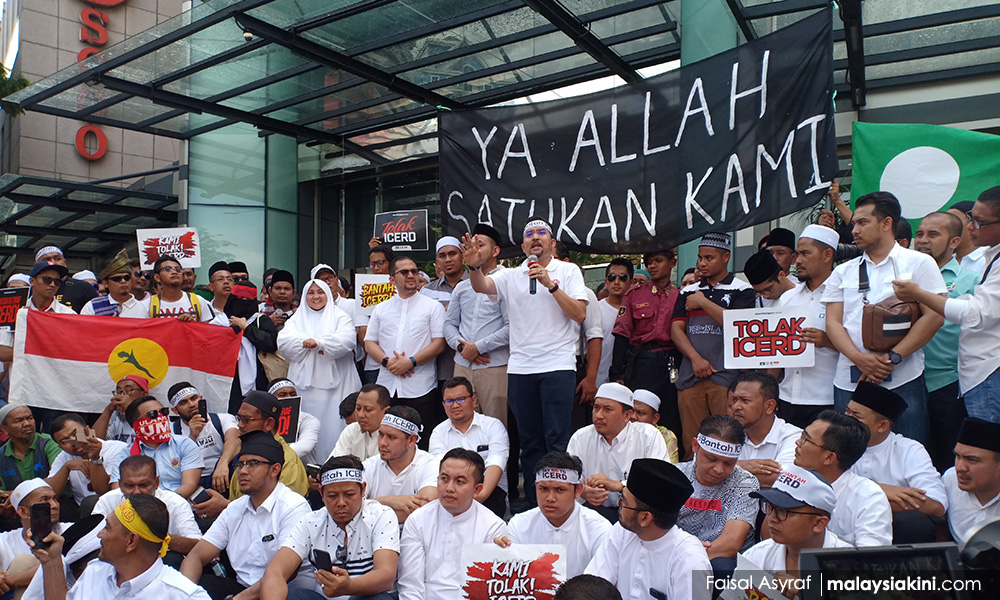

I am all for meaningful membership in the international community. We don’t want to be frogs under a shell, and it’s important that Malaysia be able to hold its head up high in the family of nations.
I sometimes wonder though, if we can achieve that better by focusing on building real, improved bonds in our own communities - communities consisting of people all Malaysians can see, touch and talk to - than by fixating on a 50-year-old agreement made by people far away.
Maybe a more united Malaysia would be the biggest achievement we can point to, both at home and abroad.
Better understanding the concerns, opinions and lives of those who are against Icerd for instance, may have more value than Icerd itself, because that understanding is the first step towards a bond - and that bond is the first step towards genuine, bottom-up national unity. - Mkini
Source | https://malaysiansmustknowthetruth.blogspot.com/2018/11/malaysian-politics-in-trumpian-era.html
Most View Article This Month !
- Kedah tables state budget with projected RM57.8m deficit
- Suhakam defends move to abolish death penalty
- PKR: Party members may be involved in cyber attack in Julau
- Dasar kerajaan baharu Sabah terhadap PATI gugat keselamatan Sabah
- Cops confirm arrest of suspected sexual groomer
- Fahmi Reza escapes jail term, fine reduced over Najib caricature
- Citing 'good faith discussions', Najib insists IPIC owes 1MDB money










